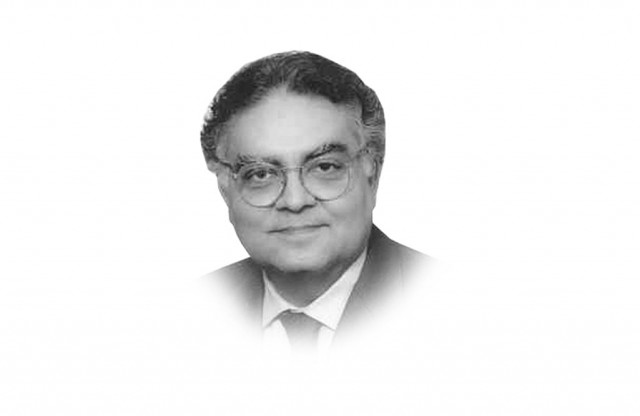Doorstep to democracy
Let us identify the principal features of Pakistan's democracy's fragility.

Doorstep to democracy
As the last four years of the roller-coaster ride of democracy have shown, there are four features of Pakistan’s politics that threaten the sustainability of democracy:
(1) At the formal level, the Constitution of Pakistan has always stipulated that the military is subordinate to elected civil authority. Yet actual practice has demonstrated that the military constitutes an important, perhaps pre-eminent faction in the power structure. Consequently, whenever the civilian structure is weakened through incompetent governance and internecine conflict, the military has historically taken over power in what it defines as the ‘national interest’. Over the years, the military has developed a large corporate domain and this has reinforced the tendency to influence political and economic decisions of even democratic governments.
(2) Partly because of long years of military rule and intermittent interventions to overthrow democratically elected governments, Pakistan’s political parties have not yet matured enough to either individually or in coalition run governments that are honest and demonstrate the ability to improve the economic conditions of the people. They have been unable even to deliver basic services such as hygienic drinking water, health care, education, public transport and protection of the life and property of citizens in terms of which a government seeks legitimacy, i.e. the right to rule. This combination of corruption and incompetence makes civilian governments vulnerable to military intervention. However, this is not to say that military governments have fared any better. Indeed they have committed a series of blunders which have undermined both the state and society. For example, the disastrous ‘Operation Grand Slam’ against Indian-occupied Kashmir in 1965 on the assumption that India would not attack the international border. It did, and it was only the heroism of Pakistan’s soldiers and young officers with the support of the people that saved the day. Then in March 1971 the catastrophic ‘Operation Search Light’ in which tanks and machine guns were used against street demonstrators in Dhaka, and which ultimately resulted in the dismemberment of Pakistan; and fighting the proxy war against the Soviet Union in Afghanistan, which involved organising, training and arming of militant extremist organisations which were to later launch terrorist attacks against Pakistan’s military installations and emerge as the principal threat to the state.
(3) A stratum of the political elite has emerged which benefited economically and socially from military rule. As Dr Hasan Askari Rizvi has pointed out, this stratum of the political elite tends to conspire for a return to dictatorship whenever an elected government performs badly.
(4) The emergence of armed extremist groups who appear to have formed a coalition that aims — through terrorist operations against Pakistan’s military, security installations and ‘soft’ targets in society together with ideological penetration of the status apparatus — to take over the Pakistani state.
These four features of Pakistan’s political landscape constitute a danger to democracy. The doorstep conditions to sustainable democracy are: neutralising the terrorist threat; an irreversible subordination of the military to elected civil authority; the institutionalised independence of the judiciary; and an executive that is able to establish a reasonably honest government that organises the professional skills available in the country to provide social and economic justice to the people and give them an economic stake in citizenship.
Published in The Express Tribune, August 9th, 2011.














COMMENTS
Comments are moderated and generally will be posted if they are on-topic and not abusive.
For more information, please see our Comments FAQ